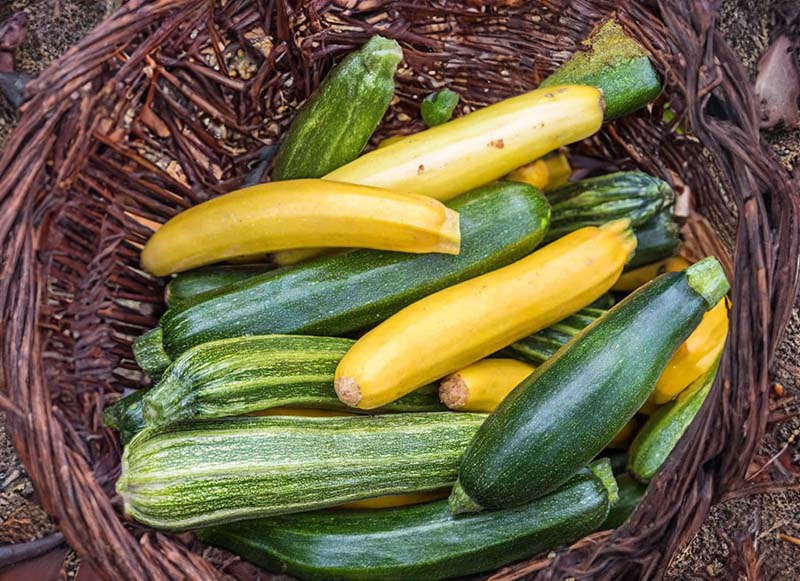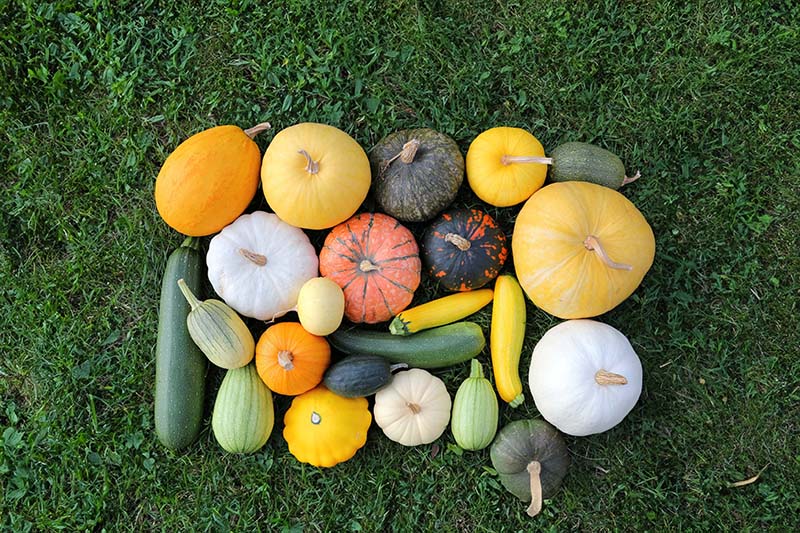As a health enthusiast, I’ve explored various methods for maintaining a healthy weight. One question that often arises is, “Is squash good for weight loss?” This seemingly simple question leads us to squash, a remarkable, yet often overlooked, ally in the pursuit of weight loss and a healthy physique.
Related articles
- Are Figs Healthy for Weight Loss? Uncovering the Facts!.
- Is Quinoa Good for Weight Loss?.
- Are Pears Good for Weight Loss? Uncovering the Diet Benefits.
Is Squash Good for Weight Loss?
Squash, a nutritional gem, emerges as an excellent dietary choice for the summer season. It’s not just a food item; it’s a multi-benefit package, especially effective for weight management.
Boasting a high water content and low in fats, squash is an ideal cooling option during warmer months. Its hydrating quality is not only refreshing but also aids in maintaining a healthy weight. Moreover, the benefits of squash extend beyond just weight loss.
For those seeking a natural approach to skincare, squash juice is a fantastic option. Its nutrient-rich profile helps in enhancing skin health, giving it a radiant glow. Additionally, the detoxifying properties of squash aid in purifying the body, contributing to overall wellness.
Note: To reap the full benefits, try incorporating squash in its natural form into your diet. Whether it’s in salads, as a steamed side dish, or in the form of juice, this versatile vegetable can be a delightful addition to your meals. For weight loss, pairing squash with a balanced diet and regular exercise can yield more significant results.
More than just a seasonal delight, squash is a powerhouse for overall health, particularly for those embracing a lifestyle fueled by natural, wholesome foods.

Nutritional Aspects of Squash
Squash, a versatile and nutritious vegetable, is an excellent addition to a health-conscious diet. Rich in vitamin C, it plays a crucial role in the growth and repair of body tissues. Its high fiber content further enhances its value, aiding in efficient digestion.
Let’s delve into the nutritional profile of squash. It’s a substantial source of several essential nutrients, including:
- Magnesium: Crucial for muscle and nerve function.
- Calcium: Vital for bone health.
- Iron: Important for blood health.
- Vitamin A: Supports eye health and immune function.
- Vitamin B6: Essential for brain development and function.
A closer look at the nutrient content per serving reveals why squash is such a beneficial choice:
When consumed raw, a one-cup serving of cubed butternut squash offers:
- Calories: A modest 63, making it ideal for weight management.
- Protein: 1 gram, contributing to muscle health.
- Fat: Less than 1 gram, supporting a low-fat diet.
- Carbohydrates: 16 grams, providing energy.
- Fiber: 3 grams, promoting gut health.
- Sugar: 3 grams, a natural sweetness.

6 Health Benefits of Eating Squash
Squash, easily found in grocery stores or health food shops, offers an array of health benefits that are truly impressive. Let’s explore six key health advantages of including squash in your diet:

Prevention of Chronic Diseases
Squash is packed with antioxidants, which play a vital role in preventing cellular damage caused by free radicals. These antioxidants are incredibly beneficial for your health.
For instance, beta-carotene, an antioxidant found in squash, is converted by your body into vitamin A. Research links beta-carotene to a reduced risk of several cancers, including Non-Hodgkin lymphoma, cervical cancer, lung cancer, and bladder cancer.
Maintenance of Bone Health
Butternut squash, a popular variety, is rich in vitamin C. A single cup serving provides nearly half of the daily recommended dose. Vitamin C is essential for building collagen in bones, ensuring flexibility and reducing the risk of fractures.
Squash also contains phosphorus and calcium, crucial for strong bone health. Adding squash to your diet can help alleviate joint stiffness and pain.
Promotion of Blood Health
Rich in iron, squash is excellent for preventing and treating iron deficiency issues, including anemia. Iron is beneficial during menstruation, reducing fatigue and improving athletic performance.
Support for Heart Health and Function
Squash contains magnesium, which is vital for over 300 bodily processes. Magnesium maintains heart rhythm and aids in DNA production, keeping you energized. Potassium in squash supports heart function and can help lower blood pressure. Additionally, beta-carotene in squash has been linked to heart disease prevention.
Protection of Eye Health
Vitamins A and C, abundant in squash, are crucial for maintaining healthy vision. Vitamin A assists in light adaptation and maintaining a clear cornea, while Vitamin C protects the eyes from infection and aids in the absorption of essential nutrients like zinc and copper.
Maintenance of Healthy Skin
The quest for flawless, glowing skin is often thwarted by modern life stressors. Squash, a fantastic source of vitamin A and beta-carotene, combats these effects. Beta-carotene converts to vitamin A in the body, a potent antioxidant necessary for maintaining skin health and integrity.
Including squash in your diet not only enhances your meals with its versatility and flavor but also contributes significantly to overall health and well-being.
How Much Squash Should You Eat?
In the realm of healthy eating, squash stands out as a unique case. Although many people might categorize it as a fruit due to its seeds, the U.S. Department of Agriculture (USDA) aligns it with vegetables, given its nutrient profile. The USDA’s MyPlate nutrition guide advises American adults to consume between two to four servings of vegetables each day. Your specific needs within this range hinge on factors like gender, age, level of physical activity, and your body size.
When it comes to nutritional champions among squashes, butternut and acorn varieties often top the list, though the margin is quite narrow and based on personal preference. The key is not to stress over selecting the ‘healthiest’ squash. Instead, opt for the ones you find most delicious and incorporate a variety into your diet to maximize the health benefits.
Summer squash, for example, can be enjoyed raw or turned into “zoodles” – a nutritious alternative to traditional noodles. It’s also delightful when sautéed or roasted with a touch of olive oil. Winter squash, on the other hand, becomes exceptionally sweet, akin to a sweet potato, when roasted. Both varieties make excellent additions to soups and pasta dishes.
Incorporating squash into your diet, whether as part of a recipe or as a standalone dish, is a decision your body will appreciate.
Conclusion
Addressing the query, “Is squash good for weight loss?” Squash is an ideal choice for those seeking weight loss and healthier eating habits, thanks to its low-calorie content and rich nutritional benefits. It’s not just a healthy addition to your diet, but also brings versatility to your cooking, allowing for a variety of delicious and nutritious meals.
We’d love to hear from you about your experiences incorporating squash into your diet, especially if you’re focusing on weight loss. Don’t forget to visit HealthConnect for more valuable insights and tips. Our extensive collection of health-related blogs offers a wealth of knowledge and inspiration for leading a healthier lifestyle.

Dr. Joyce Slater: Your Guide to Informed Health Choices
Dr. Joyce Slater shines as a distinguished expert in the field of nutrition and public health. Contributing her vast expertise to HealthConnectbc, she embodies a deep-seated passion for enhancing public well-being. As a respected figure in her field. Dr. Slater’s academic journey and professional achievements are nothing short of inspirational.
Holding a significant position as a researcher and educator, Dr. Slater has delved deeply into the intricacies of food literacy and nutritional science. Her work, prominently featured in numerous esteemed scientific publications, underscores her dedication to expanding our understanding of food’s role in health and society.
At the heart of Dr. Slater’s professional ethos is a profound desire to positively impact individual lives through education and research. She often says, “Empowering people with the knowledge to make healthier choices is the most rewarding aspect of my work.” This principle is the cornerstone of her involvement with HealthConnectbc, where she strives to provide reliable and practical health advice.
Dr. Slater’s contributions to HealthConnectbc are multifaceted: academically, she offers insights into the complex world of nutrition and health, enhancing both public understanding and professional practices. Additionally, she is instrumental in guiding and inspiring the next generation of health professionals, thus fostering future excellence in the field.
Juggling rigorous research with her educational duties, Dr. Slater demonstrates an unwavering commitment to her profession. Her approachable nature and genuine concern transcend the confines of academia, touching the lives of everyone she interacts with. Dr. Slater looks forward to continuing her journey of discovery and education, dedicated to the ongoing improvement of public health and nutrition.
At HealthConnectbc, Dr. J. Slater is not just a contributor; she is a guiding light, dedicated to enlightening and motivating individuals towards a healthier and more informed lifestyle.
PUBLISHED ARTICLES
- Food literacy competencies: A conceptual framework for youth transitioning to adulthood (2018)
- Self-perceived eating habits and food skills of Canadians (2016)
- Challenges to acquiring and utilizing food literacy: Perceptions of young Canadian adults (2016)
- Socio-demographic and geographic analysis of overweight and obesity in Canadian adults (2009)
- Sustainable well-being: Concepts, issues, and educational practices (2014)


